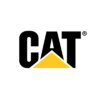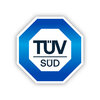
i
Atlas
Copco
Filter interviews by
Atlas Copco Interview Questions and Answers for Freshers
18 Interview questions
Using GenAI enhances project efficiency, creativity, and decision-making through advanced data analysis and automation.
Improved Efficiency: GenAI can automate repetitive tasks, allowing teams to focus on more strategic activities.
Enhanced Decision-Making: By analyzing large datasets, GenAI provides insights that help in making informed decisions.
Creative Solutions: GenAI can generate innovative ideas and solutions...
Applying DC to a transformer can cause overheating and damage due to lack of magnetic flux change.
Transformers operate on the principle of electromagnetic induction, which requires alternating current (AC).
When DC is applied, it creates a constant magnetic field, leading to core saturation.
Core saturation results in excessive current draw, potentially damaging the transformer windings.
For example, a transformer ra...
DC motors are classified into several types based on their construction and operation, including brushed and brushless variants.
Brushed DC Motor: Uses brushes for commutation; common in toys and small appliances.
Brushless DC Motor: No brushes; used in computer fans and electric vehicles.
Series DC Motor: High starting torque; ideal for cranes and electric trains.
Shunt DC Motor: Constant speed; used in lathes and co...
Switchgears are electrical devices used to control, protect, and isolate electrical equipment in power systems.
Switchgears are used to control the flow of electricity in a power system.
They protect electrical equipment from overloads, short circuits, and other faults.
Switchgears can isolate faulty equipment to prevent damage to the rest of the system.
Examples of switchgears include circuit breakers, fuses, and dis...
Motor starters are devices used to start and stop electric motors safely and efficiently.
Motor starters control the flow of electricity to the motor, protecting it from overloads and short circuits.
They typically consist of a contactor, overload relay, and control devices like push buttons or switches.
Motor starters can be manual or automatic, with features like thermal overload protection and phase loss detection...
Synchronous speed is the speed at which the magnetic field rotates in a synchronous motor.
Synchronous speed is determined by the frequency of the power supply and the number of poles in the motor.
Formula for synchronous speed: Ns = 120f / P, where Ns is synchronous speed in RPM, f is frequency in Hz, and P is number of poles.
For example, a 4-pole motor connected to a 60 Hz power supply would have a synchronous spe...
Types of stresses include tensile, compressive, shear, bending, and torsional.
Tensile stress: pulling force that stretches material apart (e.g. stretching a rubber band)
Compressive stress: pushing force that squeezes material together (e.g. pressing on a spring)
Shear stress: force that causes layers of material to slide past each other (e.g. cutting paper with scissors)
Bending stress: combination of tensile and co...
Stress is internal resistance to deformation, while pressure is force applied over an area.
Stress is a measure of the internal resistance of a material to deformation under an applied force.
Pressure is the force applied perpendicular to the surface of an object per unit area.
Stress is a tensor quantity, while pressure is a scalar quantity.
Examples: A rubber band under tension experiences stress, while a balloon fi...
Categories of strength in machine design include static strength, fatigue strength, impact strength, and toughness.
Static strength: Ability to withstand a constant load without breaking.
Fatigue strength: Ability to withstand repeated loading over time.
Impact strength: Ability to withstand sudden shocks or impacts.
Toughness: Ability to absorb energy and deform without fracturing.
Shear stress is a type of stress that acts parallel to a surface, causing layers of material to slide past each other.
Shear stress is caused by forces applied parallel to a surface, leading to deformation.
It is calculated as force divided by the area over which the force is applied.
Shear stress is commonly seen in materials like fluids, where layers move at different speeds.
Examples include cutting paper with scis...
Atlas Copco Interview Experiences for Freshers
18 interviews found
I appeared for an interview in Apr 2025, where I was asked the following questions.
- Q1. An interviewer who dont have technical knowledge took my interview and he is rude asking me why u have lengthy resume. Q1-why r u using cloud storage in ur project its not safe, 2. using llm is not safe 3....
- Q2. Why do using genai in ur projects.
- Ans.
Using GenAI enhances project efficiency, creativity, and decision-making through advanced data analysis and automation.
Improved Efficiency: GenAI can automate repetitive tasks, allowing teams to focus on more strategic activities.
Enhanced Decision-Making: By analyzing large datasets, GenAI provides insights that help in making informed decisions.
Creative Solutions: GenAI can generate innovative ideas and solutions, suc...
Interview Preparation Tips
I appeared for an interview in Feb 2025, where I was asked the following questions.
- Q1. What are types of DC motor
- Ans.
DC motors are classified into several types based on their construction and operation, including brushed and brushless variants.
Brushed DC Motor: Uses brushes for commutation; common in toys and small appliances.
Brushless DC Motor: No brushes; used in computer fans and electric vehicles.
Series DC Motor: High starting torque; ideal for cranes and electric trains.
Shunt DC Motor: Constant speed; used in lathes and conveyo...
- Q2. What will happen if we provide DC to Transformer
- Ans.
Applying DC to a transformer can cause overheating and damage due to lack of magnetic flux change.
Transformers operate on the principle of electromagnetic induction, which requires alternating current (AC).
When DC is applied, it creates a constant magnetic field, leading to core saturation.
Core saturation results in excessive current draw, potentially damaging the transformer windings.
For example, a transformer rated f...
- Q3. Types of CB and Relays
Interview Preparation Tips
I applied via Campus Placement and was interviewed in Apr 2024. There was 1 interview round.
(2 Questions)
- Q1. What do you think about the german electronic car industry
- Ans.
The German electronic car industry is a leading force in the global market, known for innovation and quality.
Germany is home to major players like Volkswagen, BMW, and Mercedes-Benz who are investing heavily in electric vehicles.
The industry is focused on sustainability and reducing carbon emissions, with a strong emphasis on research and development.
German electric cars are known for their advanced technology, perform...
- Q2. What do you think about our competitors
- Ans.
Competitors play a crucial role in shaping market dynamics and innovation, driving us to improve and differentiate our offerings.
Competitor A has a strong online presence, leveraging social media effectively to engage with customers.
Competitor B offers unique features that cater to niche markets, such as customizable solutions for specific industries.
Competitor C has established partnerships that enhance their service ...
Interview Preparation Tips
I applied via Approached by Company and was interviewed in Apr 2024. There were 2 interview rounds.
Technical Question Related to Electrical and Instrumentation of rotary equipments.
(2 Questions)
- Q1. What are motor starters ?
- Ans.
Motor starters are devices used to start and stop electric motors safely and efficiently.
Motor starters control the flow of electricity to the motor, protecting it from overloads and short circuits.
They typically consist of a contactor, overload relay, and control devices like push buttons or switches.
Motor starters can be manual or automatic, with features like thermal overload protection and phase loss detection.
Exam...
- Q2. What are the switchgears ?
- Ans.
Switchgears are electrical devices used to control, protect, and isolate electrical equipment in power systems.
Switchgears are used to control the flow of electricity in a power system.
They protect electrical equipment from overloads, short circuits, and other faults.
Switchgears can isolate faulty equipment to prevent damage to the rest of the system.
Examples of switchgears include circuit breakers, fuses, and disconne...
I applied via Campus Placement
Topics were generic available on any website for GD
(3 Questions)
- Q1. Prepare your projects. Know basics rather than focusing on facts.
- Q2. Types of compressors,
- Ans.
Types of compressors include reciprocating, rotary, centrifugal, and axial compressors.
Reciprocating compressors use a piston to compress the gas.
Rotary compressors use rotating impellers or screws to compress the gas.
Centrifugal compressors use centrifugal force to compress the gas.
Axial compressors use a series of rotating and stationary blades to compress the gas.
- Q3. Hobbies and why do you like them
- Ans.
I enjoy hiking, reading, and painting as hobbies.
Hiking allows me to connect with nature and stay active
Reading helps me relax and escape into different worlds
Painting allows me to express my creativity and emotions
Interview Preparation Tips
I applied via Campus Placement

Topics were generic available on any website for GD
(3 Questions)
- Q1. Prepare your projects. Know basics rather than focusing on facts.
- Q2. Types of compressors,
- Ans.
Types of compressors include reciprocating, rotary, centrifugal, and axial compressors.
Reciprocating compressors use a piston to compress the gas.
Rotary compressors use rotating impellers or screws to compress the gas.
Centrifugal compressors use a rotating impeller to accelerate the gas and then convert the kinetic energy into pressure.
Axial compressors use a series of rotating and stationary blades to compress the gas...
- Q3. Hobbies and why do you like them
- Ans.
I enjoy hiking, painting, and playing the guitar as hobbies.
Hiking allows me to connect with nature and stay active
Painting is a creative outlet for me to express myself
Playing the guitar helps me relax and unwind after a long day
Interview Preparation Tips
I applied via Campus Placement and was interviewed in Mar 2023. There was 0 interview round.
- Q1. This round was new and exciting, and it requires two candidates (let's say A and B). The panelist will give Candidate A a complex figure of different fundamentals shapes (such as triangle, circle, diamond,...
- Q2. Duration: approx. 40 minutes Questions asked during Technical Interview: 1) Tell us about your family background. 2) What refrigerant we use in fridge? Why we used that particular refrigerant? Can we use w...
- Q3. Duration: approx. 25 minutes Questions asked during HR Interview: 1) About family background 2) About your hobbies 3) About final year project Etc>
- Q4. NO
- Q5. It was an online test and the duration of this test was 1 hour. In this test, general knowledge, general aptitude (such as seating arrangement, pipes and cisterns), and fundamentals of mechanical (thermody...
- Q6. "Is EV better than a conventional vehicle?" was the topic of discussion. Duration of discussion was 15 minutes and each candidate had to conclude the discussion.
Interview Preparation Tips
- Thermodynamics
- Heat Exchangers
- Heat Treatment
- Refrigeration
- Air Conditioning
- Electricals
(1 Question)
- Q1. What is your experiencce
- Ans.
I have extensive experience in software engineering, focusing on full-stack development, team leadership, and project management.
Full-Stack Development: I have worked on both front-end and back-end technologies, including Java, Spring Boot, React, and Node.js, delivering end-to-end solutions.
Team Leadership: I led a team of 5 engineers in a project that improved application performance by 30%, fostering collaboration a...

(1 Question)
- Q1. What do you know about company Technical questions and the subject you say
(1 Question)
- Q1. Introduction to self Why do you want to join this company
- Ans.
I am a passionate individual eager to contribute to your innovative team and grow professionally in a dynamic environment.
I admire the company's commitment to innovation, as seen in your recent project on sustainable technology.
Your focus on employee development aligns with my goal of continuous learning and skill enhancement.
I am excited about the collaborative culture here, which I believe fosters creativity and team...
Interview Preparation Tips
I applied via Campus Placement and was interviewed in Jul 2022. There were 4 interview rounds.

General topics related to social issues and current affairs
(4 Questions)
- Q1. Technical + HR interview
- Q2. Share your project experience.
- Ans.
I have worked on multiple projects in the past.
Developed a mobile application for a retail company
Managed a website redesign project for a marketing agency
Implemented a data analytics solution for a financial institution
- Q3. Bernoulli's equation, assumptions, and applications
- Ans.
Bernoulli's equation is a fundamental principle in fluid dynamics that relates pressure, velocity, and elevation.
Assumptions: incompressible, inviscid, steady flow, no heat transfer
Applications: aircraft wings, fluid flow in pipes, blood flow in arteries
Bernoulli's equation: P + 1/2pv^2 + pgh = constant
P = pressure, v = velocity, p = density, g = acceleration due to gravity, h = height
- Q4. Why Atlas Copco GECIA?
- Ans.
Atlas Copco GECIA is a leading provider of industrial equipment and services.
Atlas Copco GECIA has a strong reputation for quality and reliability in the industry.
They offer a wide range of products and services to meet the needs of their customers.
Their focus on innovation and sustainability sets them apart from their competitors.
They have a global presence and are committed to providing excellent customer service.
Exa...
(1 Question)
- Q1. Internship of 1-month duration for performance validation of candidate.
Interview Preparation Tips
- Thermodynamics
- SOM
- Projects
Top trending discussions






Atlas Copco Interview FAQs
The duration of Atlas Copco interview process can vary, but typically it takes about less than 2 weeks to complete.
Tell us how to improve this page.
Atlas Copco Interviews By Designations
- Atlas Copco Design Engineer Interview Questions
- Atlas Copco Senior Design Engineer Interview Questions
- Atlas Copco Service Engineer Interview Questions
- Atlas Copco Intern Interview Questions
- Atlas Copco Project Engineer Interview Questions
- Atlas Copco Graduate Trainee Interview Questions
- Atlas Copco Software Developer Interview Questions
- Atlas Copco Graduate Engineer Trainee (Get) Interview Questions
- Show more
Interview Questions for Popular Designations
- Design Engineer Interview Questions
- Senior Design Engineer Interview Questions
- Service Engineer Interview Questions
- Intern Interview Questions
- Graduate Trainee Interview Questions
- Project Engineer Interview Questions
- Analyst Interview Questions
- Graduate Engineer Trainee (Get) Interview Questions
- Show more
Overall Interview Experience Rating
based on 15 interview experiences
Difficulty level
Duration
Interview Questions from Similar Companies
Atlas Copco Reviews and Ratings
based on 838 reviews
Rating in categories
|
Design Engineer
299
salaries
| ₹4.7 L/yr - ₹10 L/yr |
|
Service Engineer
238
salaries
| ₹3.6 L/yr - ₹7.5 L/yr |
|
Senior Design Engineer
217
salaries
| ₹9.5 L/yr - ₹15.5 L/yr |
|
Project Engineer
181
salaries
| ₹6 L/yr - ₹14 L/yr |
|
Senior Service Engineer
110
salaries
| ₹5.3 L/yr - ₹12 L/yr |
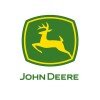
John Deere

Cummins
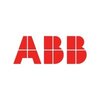
ABB
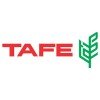
Tractors and Farm Equipment
- Home >
- Interviews >
- Atlas Copco Interview Questions >
- Atlas Copco Interview Questions for Fresher


